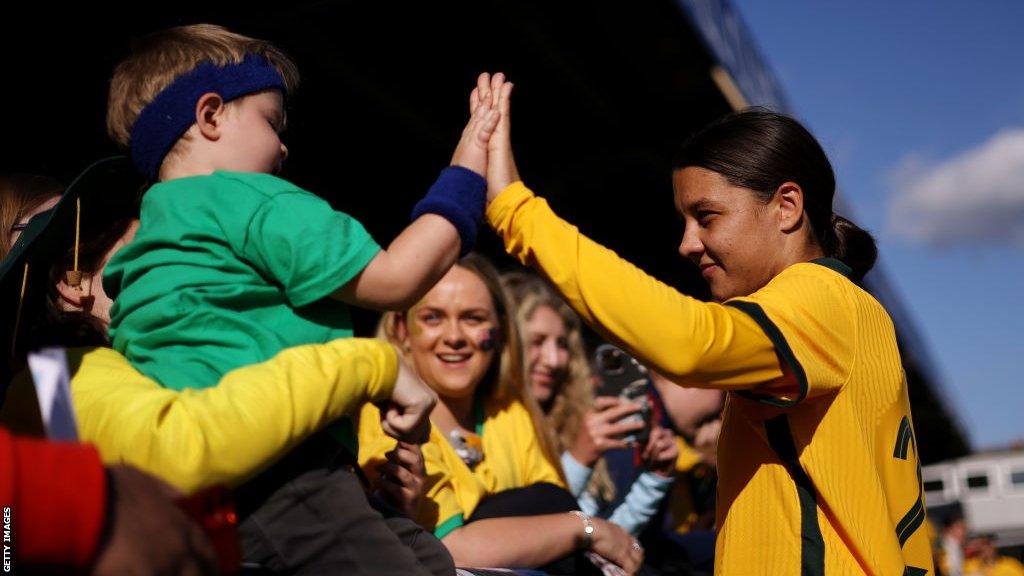Women's World Cup 2023: Co-hosts Australia's opener moved to 83,500 stadium over ticket demands
- Published

Chelsea striker Sam Kerr is Australia's all-time leading scorer with 61 goals in 116 caps for the Matildas
Co-hosts Australia's first game in the 2023 Fifa Women's World Cup has been moved to a bigger venue in a bid to meet the demand for tickets.
Australia's Group B opener against the Republic of Ireland on Thursday, 20 July has been switched to the 83,500 capacity Stadium Australia in Sydney.
It was originally due to be played at Sydney Football Stadium, which holds almost half as many people, 45,500.
Fifa hopes more than 100,000 fans will attend the event's opening day overall.
The other host nation, New Zealand, face former World Cup winners Norway earlier the same day at the 50,000 capacity Eden Park in Auckland, which will host the opening ceremony prior to the game.
Last week, Football Australia CEO James Johnson told BBC Sport that seeing England's Lionesses sell out Old Trafford for their opening game of last summer's Uefa European Championship had inspired them to look at using a bigger stadium.
Stadium Australia was originally only scheduled to host knockout matches but Fifa said "significant interest in tickets" had necessitated the switch.
"Fifa's mission is to organise the biggest and best Women's World Cup in history this year, and fans, those who bring colour, passion, and atmosphere to stadiums will be such an integral part of the tournament's success," said Fifa secretary general Fatma Samoura.
"With this in mind, we have taken a decision that will enable over 100,000 fans to attend the opening matchday, providing more opportunities for supporters."
Australia have qualified for the past seven editions of the Women's World Cup, reaching the quarter-finals in three successive tournaments in 2007, 2001 and 2015, but New Zealand have never progressed past the group stage.
European champions England have been drawn in Group D alongside Denmark, China and a yet-to-be-determined play-off winner, who the Lionesses will face in their opening game in Brisbane on 22 July.
The United States will be defending their title in Oceania, having beaten the Netherlands in the 2019 final in France.